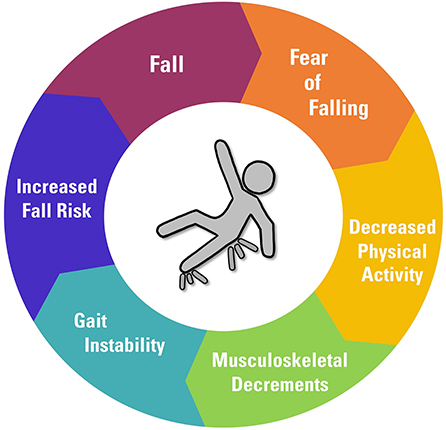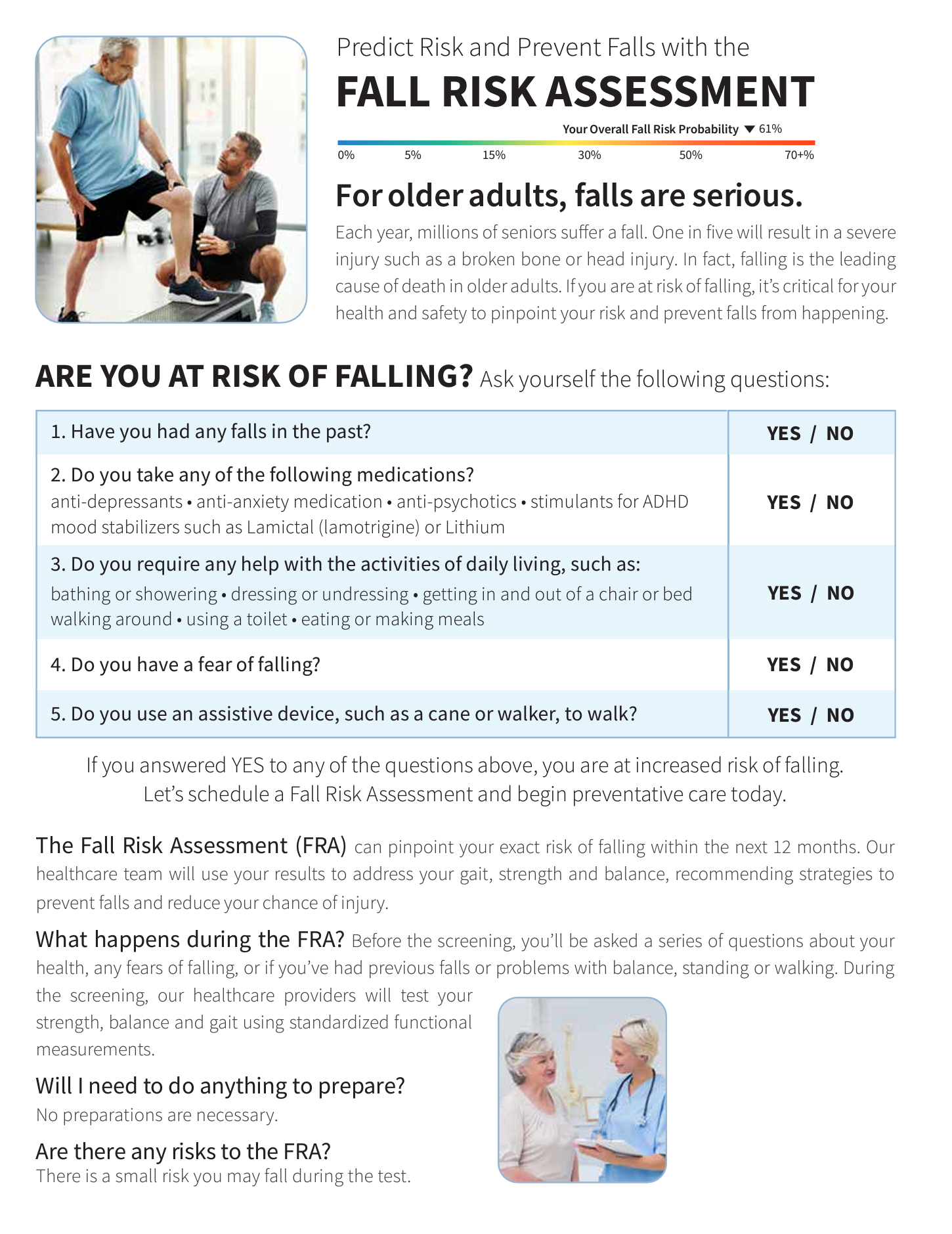The Single Strategy To Use For Dementia Fall Risk
Table of ContentsThe 30-Second Trick For Dementia Fall RiskThe smart Trick of Dementia Fall Risk That Nobody is DiscussingThe Of Dementia Fall RiskThe Dementia Fall Risk StatementsThe Definitive Guide for Dementia Fall Risk
Based on signs and symptoms, such as evidence of head injury or a new focal neurologic deficiency, calculated tomography or MRI of the mind may be indicated. An evaluation for reasons of syncope must be performed just if there is solid suspicion, as when it comes to frequent, inexplicable drops

Doctor make use of a loss danger evaluation to identify your risk factors for dropping and make handy referrals. Some individuals attempt to decrease their fall threat by restricting their activity or striving to be much more careful. These well-intentioned actions aren't sufficient - Dementia Fall Risk. A fall threat analysis is essential because knowing which variables boost your chances of dropping assists you: Minimize your threat of falling or hurting on your own.
All grownups 65 years and older must have a first loss threat testing. Have actually dropped in the previous year. Worry concerning dropping.
How Dementia Fall Risk can Save You Time, Stress, and Money.

Explore this comprehensive nursing treatment plan and management guide to properly stop danger for falls amongst individuals. Acquire essential expertise about the nursing assessment, taking care of medical diagnosis, and goals particularly customized to people who go to danger for drops. A is specified as an event that causes a person coming to relax unintentionally on the ground or floor or various other lower degree (WHO, 2021).
According to the Centers for Condition Control and Prevention (CDC),, creating over 34,000 deaths for that age. Falling is the 2nd leading cause of fatality from unintended injuries internationally. Death from drops is a major and native to the island issue amongst older people. It is estimated that loss death rates in the united state

Each year, over 800,000 clients are hospitalized due to drops. Nurses play a major function in stopping succumbs to their clients via education, examining loss threat, creating safer atmospheres, and supplying treatments in protecting against injuries from falls. A number of threat factors and conditions contribute to falls, including the following:. Aged 65 years and older; reduced arm or leg prosthesis; use assistive tools such as pedestrian, crane, and mobility device; living alone.
Client will demonstrate selective avoidance actions. Patient and caretakers will certainly carry out methods to enhance safety and prevent drops in the home. Autumns are because of several factors, and an all natural strategy to the private and atmosphere is necessary. Suppose an individual is thought about at high risk for drops after the testing.
Dementia Fall Risk Things To Know Before You Buy
A requires using a verified device that scientists have actually checked out to be useful in naming the causes of falls in an individual. The degree of autumn danger can Read Full Report be identified using the evaluation of innate and external aspects.
Individuals are a lot more most likely to drop once again if they have sustained one or more drops in the previous 6 months. The older population is at enhanced risk of fall-related readmissions based on a study identifying the variables anticipating of repeat drops connected outcomes (Prabhakaran et al., 2020).
The capability of people to secure themselves from falls is impacted by such factors as age and growth. Older people with weak muscle mass are more most likely to drop than my company those who keep muscle stamina, flexibility, and endurance.
4 Easy Facts About Dementia Fall Risk Described
Less contrast sensitivity was rather related to both increased rates of falls and other injuries, while reduced aesthetic skill was just connected with enhanced autumn rate (Timber et al., 2011). Sensory assumption of environmental stimuli is critical to security. Vision and hearing disability restriction the person's capacity to perceive hazards in the surroundings.
Older adults who have poor balance or difficulty walking are most likely to fall. These problems may be related to absence of exercise or a neurological reason, joint inflammation, or various other clinical conditions and therapies. A crucial danger aspect highlighted in a research study is that grownups with rheumatoid arthritis are at high risk of falls, consisting of puffy and tender reduced extremity joints, tiredness, and use of psychotropic medicines (Stanmore et al., 2013).
Comments on “Dementia Fall Risk - Questions”